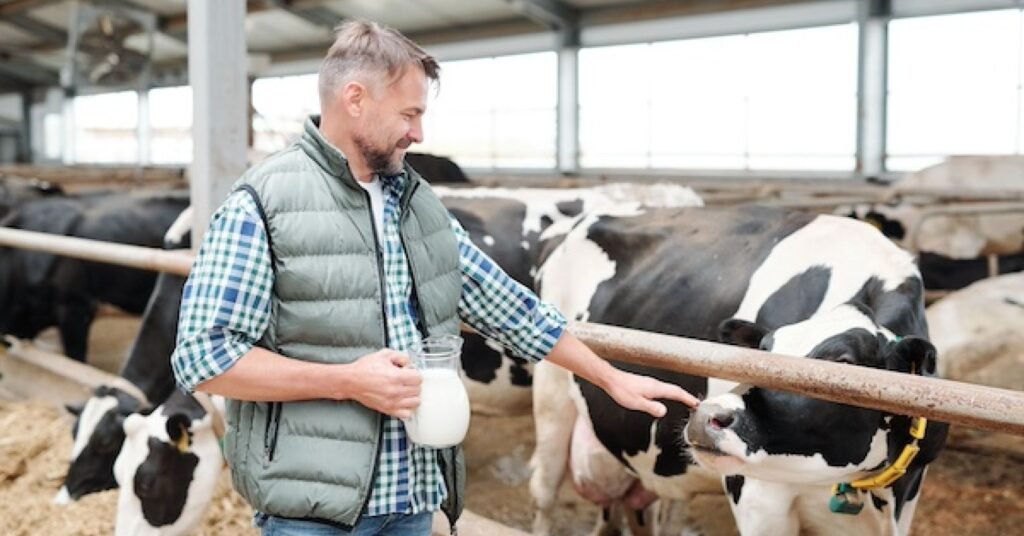by Roberta Bellamy, PhD, LMFT
Current global research indicates that family farms are in crisis (Daghagh Yazd et al., 2019). Reports of suicide among the farming population have risen to alarming rates, with some U.S. data indicating three times the suicide rate of the general population (Norrod et al., 2023; Peterson et al., 2020). Furthermore, we know from research that occupation-related stressors are putting this population at risk for suicide (Daghagh Yazd et al., 2019).
Occupational stressors identified in the farming population include many variables outside of a farmer’s control, such as variable weather patterns, volatile commodity markets, government regulations and administrative requirements, trade agreements, shortage of farm labor, and the maintenance of a workforce (Reed & Claunch, 2020), to name some of the more commonly cited. Risk factors associated with farmer stress and behavioral health include financial difficulties, working long hours in isolation, no sick leave or vacation time, physical health issues, easy access to firearms, and exposure to pesticides (Daghagh Yazd et al., 2019). Some of the more common mental health issues include adjustment disorders, problems in relationships, anxiety, depression, and substance misuse (Rosmann, 2016).
Crises in agriculture are not new (Melichar, 1977), and the associated mental health crises for farmers are certainly not new either, just perhaps unacknowledged in the social sciences in decades past (Cogner & Elder, 1994). As of today, a search through the literature will uncover a wealth of recent, global mental health studies focused on the farming population (Daghagh Yazd et al., 2019) and demonstrating a growing interest in farm-related mental health research; however, evidence of effective interventions is still lagging (Younker & Radunovich, 2021).
Through the 1970s and 1980s, the agricultural sector in America began to expand into larger national and global economic systems, which subsequently made it more vulnerable to economic and political influences (Barnett, 2000). Incidentally, since farming is now a global industry, food security also means national security.
In 1862, 90% of Americans were farmers; by 1920, this number was down to 30% (Public Broadcasting Service, n.d.). Beginning in 1940 and over the next four decades there was a dramatic decrease in percentage of the nation’s population living on farms. By 1981, less than 3% of the U.S. population farmed (n.d.). Over the same period, the average size of a farm more than doubled, and much of rural America branched out into nonagricultural industries (Cogner & Elder, 1994). Today, farm and ranch families comprise less than 2% of the U.S. population (American Farm Bureau Association, n.d.). It is this 2% who subsequently provide food and fiber to the rest of us, and we need them to be successful.
Today, of all farms in the U.S., 98% are family farms. Of these, 89% are categorized as small family farms (Whitt et al., 2022). In 2020, most small family farms had an operating profit margin (OPM) of less than 10%—indicating a higher risk of financial problems. The OPM is the share of gross income that is profit—one way to gauge a farm’s financial performance. According to Whitt and colleagues, small family farms do not always earn a profit and sometimes lose money as did 39% in 2011 and 42% in 2020. Currently, agriculture is cycling through a repeat of earlier farm crises, with similar mental health issues to those that farmers experienced in the 1980s.
There is a shortage of mental health providers across the country, especially in rural areas, but there is an even greater shortage of providers who understand the farming culture. The goal of a Provider Support Network (PSN) is to offer providers who are from a farming background, or who are interested in working with farmers—a network of peer professionals working with the farming population to receive support, resources, and training. Its purpose is also to provide behavioral health professionals with a space to discuss the unique cases and challenges they encounter.
Therapists working with agricultural clients will be most effective if they know the language of farming and understand the culture. Though there have been no studies identifying specific therapeutic interventions aside from peer farmer support groups and stress relief techniques, I have been pleased with Structural Family Therapy and Bowen’s Family Systems Theory as my chosen modalities. These models are in line with the farm family culture and the interventions make sense to farm families.
Agricultural behavioral health is a new frontier for mental health providers. The health of our family farms directly impacts our nation’s food and national security. Agricultural research from across the globe indicates that family farms are currently in a state of crisis, with farmer suicides at alarming rates. Health and safety studies that focus on farming populations point to challenges that span biological, psychological, and sociological domains. While a family farm operation is necessarily co-located with the family home, many of these farms are also temporary work/home environments for migrant and seasonal agricultural workers. As marriage and family therapists are systems thinkers, we understand the need for a holistic treatment approach. Since family farms in many ways represent a unique culture, and because the health implications span biopsychosocial (BPS) domains, marriage and family therapists are well suited to work with this culture.
Roberta Bellamy, PhD, LMFT, is a medical family therapist who specializes in agricultural behavioral health. She is a board-licensed marriage and family therapist in the state of North Carolina and operates a small private practice in Kinston.
To find a therapist, visit the Psychology Today Therapy Directory.

